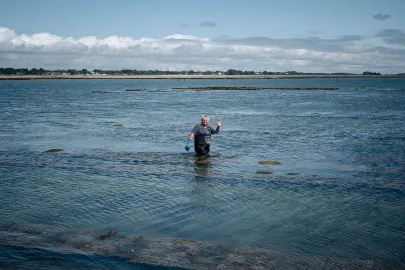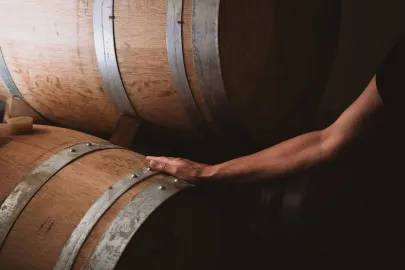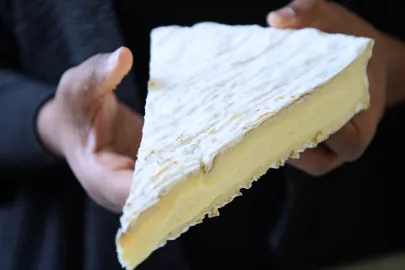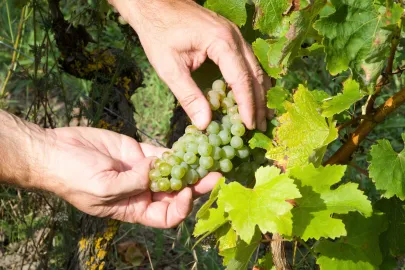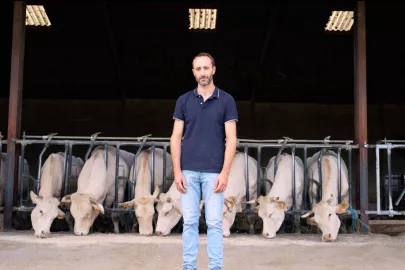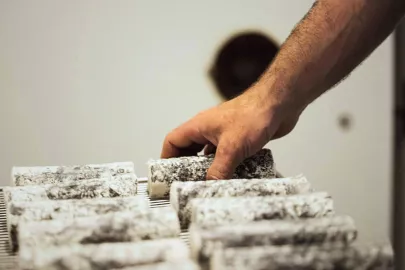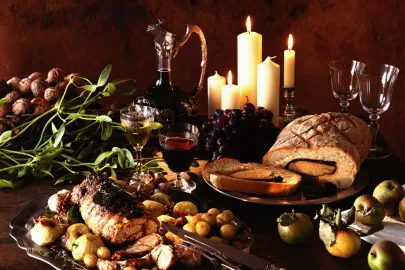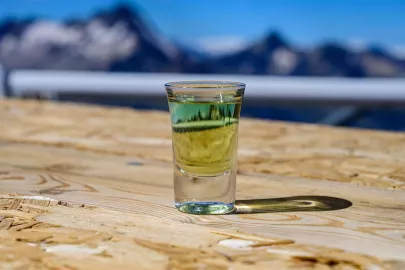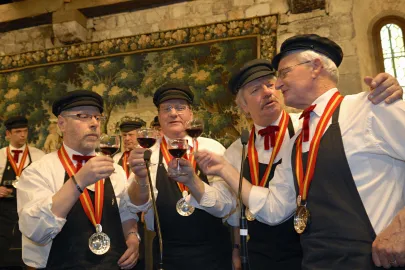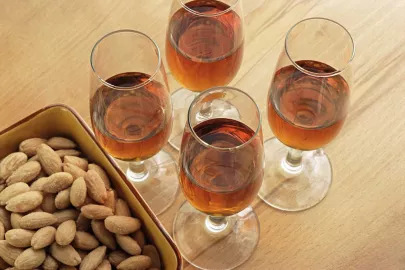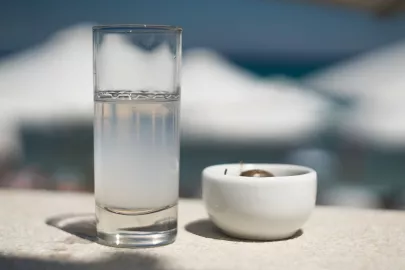On his estate in the Ardéche, Jean Delobre tends naturally to his grapes, destined for delicious Saint-Joseph wines. He invited Taste France to take a tour of the vineyard. Read on to find out more.
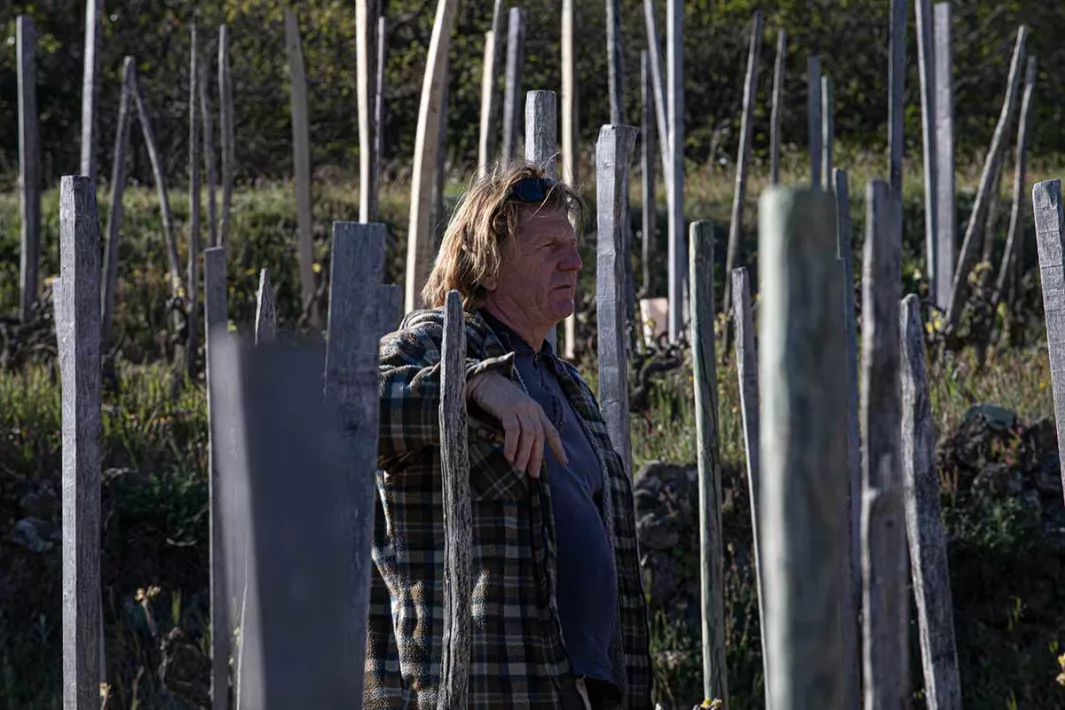
At the very top of a winding road is the village of Bogy, overlooking the Rhône valley. This is where Jean Delobre's grandparents built the house where he lives today. There, his father followed in their footsteps, continuing the tradition of polyculture farming, with fruit trees, animals and a vineyard. "He used to produce a popular wine from vines planted in the 1970s, particularly Syrah. When I took over in 1984, my grapes went to the cooperative cellar, like half of the appellation's grapes."
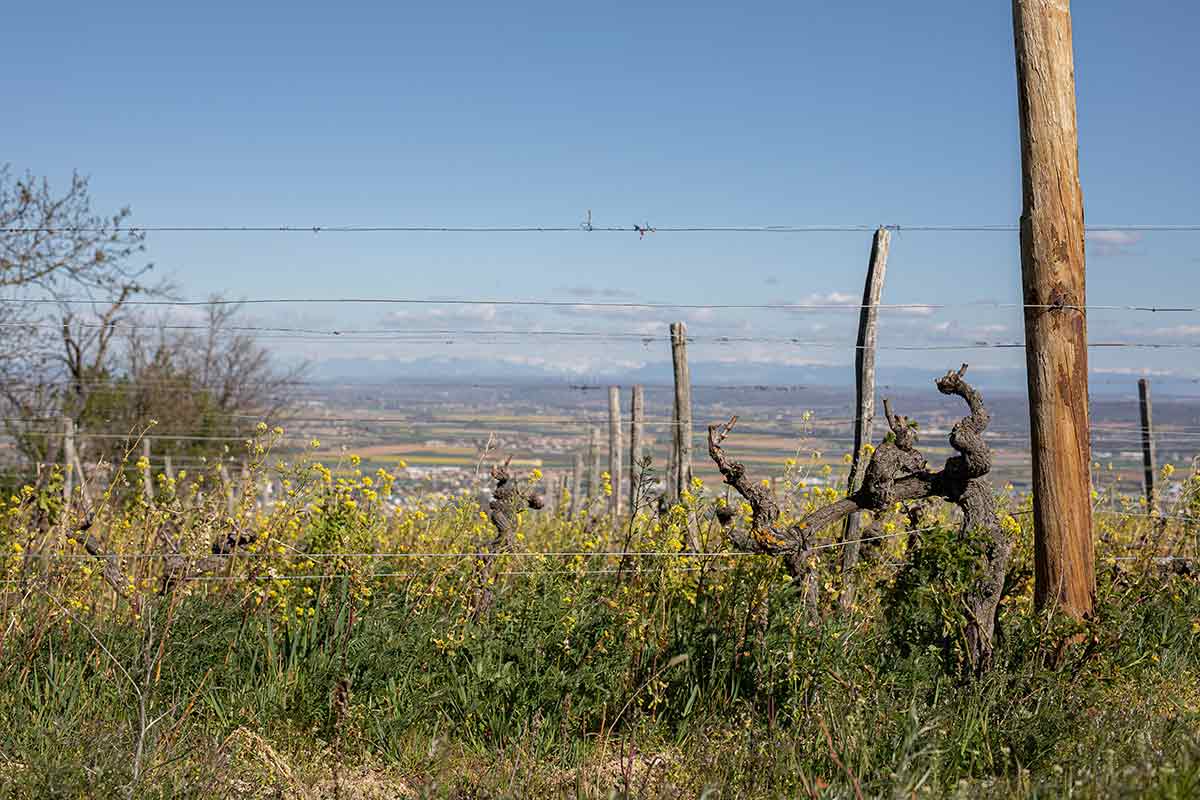
© ©PHILIPPE VAURÈS SANTAMARIA
Wines of the terroir
Since then, this farmer-winegrower has left the cooperative cellar, made his vineyard organic and now grows ten hectares (25 acres) of grapes. Of the 50,000 bottles Jean Delobre and his partner Jacques Maurice produce each year, half are labeled Saint-Joseph. Created in 1956, the appellation area takes in 26 communes scattered between the Ardèche and the Loire, in south-eastern France. With some 1,200 hectares (2,965 acres) of vines, it stretches along the Rhône for almost 60 kilometers (37 miles). Jean Delobre's vineyard is situated between Bogy and the surrounding villages. Granite rock, typical of the Saint-Joseph vineyard, outcrops amongst the rows of vines on plateaus perched at an altitude of 350 meters (1,148 feet). The vegetation here is lush. There is no question of removing the flora with lots of phytosanitary products. "I became aware of organic farming at agricultural college, but it took time to put these principles into practice on my own land. More than twenty years after converting to organic, the soil has a new lease of life and the vines are healthier", explains the winegrower, who is also trying biodynamics. The name of his farm, Ferme des 7 Lunes (Seven Moons Farm), is a nod to the cosmos…
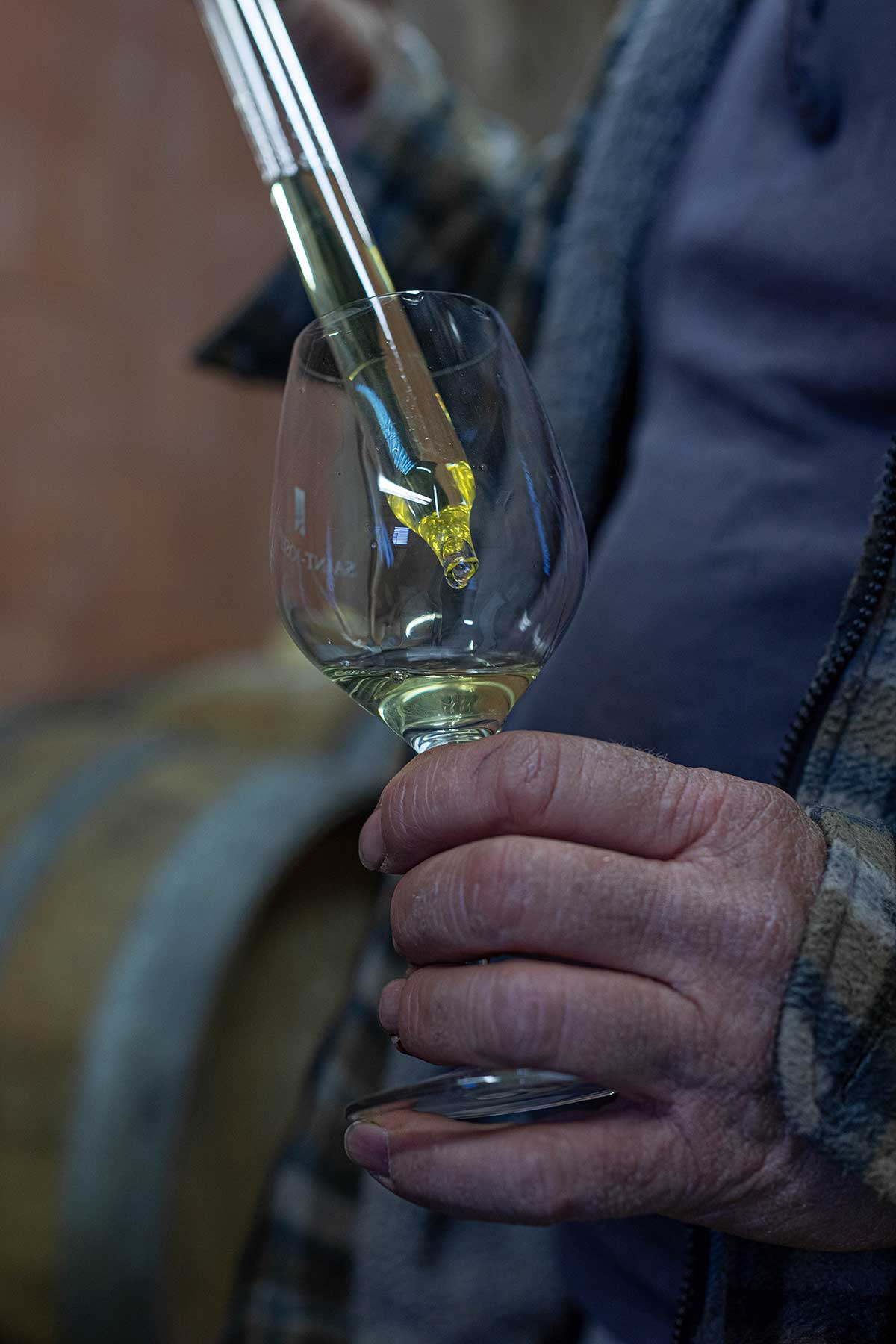
© ©PHILIPPE VAURÈS SANTAMARIA
Savoir-faire and laisser faire
"Although the appellation is known primarily for its reds, it also produces 10% of white Saint-Joseph, blending the Marsanne and Roussanne grapes", Jean explains, pointing to the plots of land surrounding us. At the end of the summer, the grapes are harvested manually and stored in cases before being transferred to the cellar below. The grapes are then made into wine in the most natural way in the world. Using native yeasts, the berries ferment in stainless steel vats. Once the grapes have turned into wine, the juices are aged for at least twelve months before bottling. When necessary, Jean Delobre allows himself to add a tiny amount of sulfur. This all calls for a toast. In our glasses is, "Chemin Faisant", produced from the oldest Syrah vines on the estate. "It sums up the farm beautifully!" The proof is in the tasting: the tannins are elegantly blended and the fruit, including the blackcurrant, is radiant. There's not long to wait before the 2020 vintage will be making its way to wine merchants and natural wine bars all over the world.
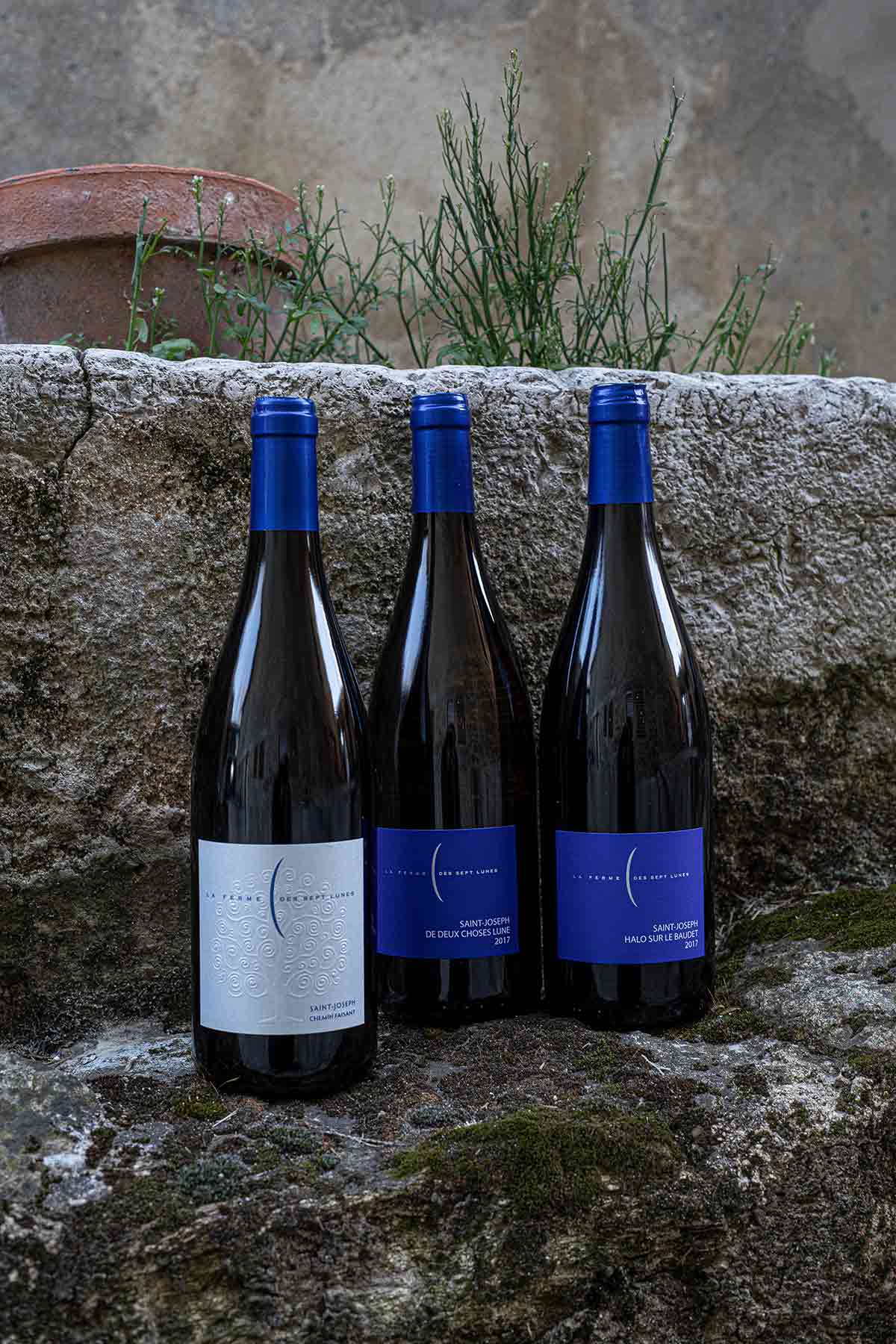
© ©PHILIPPE VAURÈS SANTAMARIA
The wines from La Ferme des 7 Lunes in Saint-Joseph PDO :
« De Deux Choses » Lune, Saint-Joseph, bio (blanc)
« Premier Quartier », Saint-Joseph, bio (rouge)
« Pleine Lune », Saint-Joseph, bio (rouge)
« Chemin Faisant », Saint-Joseph, bio (rouge)
« Halo Sur Le Baudet », Saint-Joseph, bio (rouge)
La Ferme des 7 Lunes
480 route de la Vallée, 07340 Bogy
Contributor

Editor

